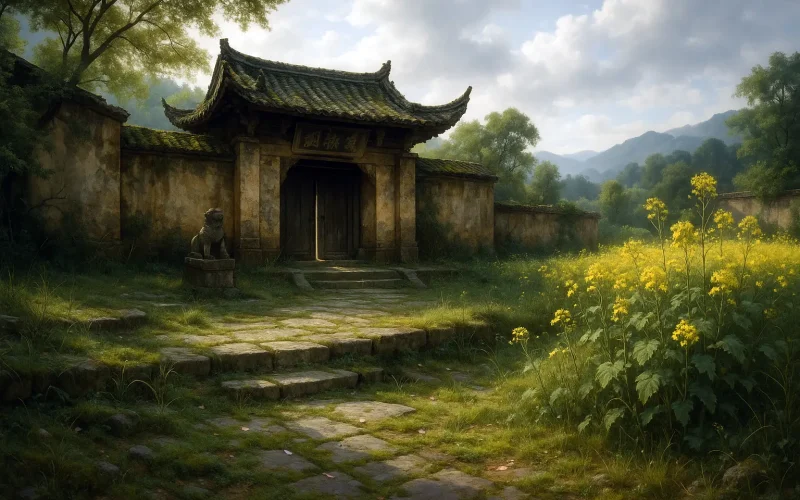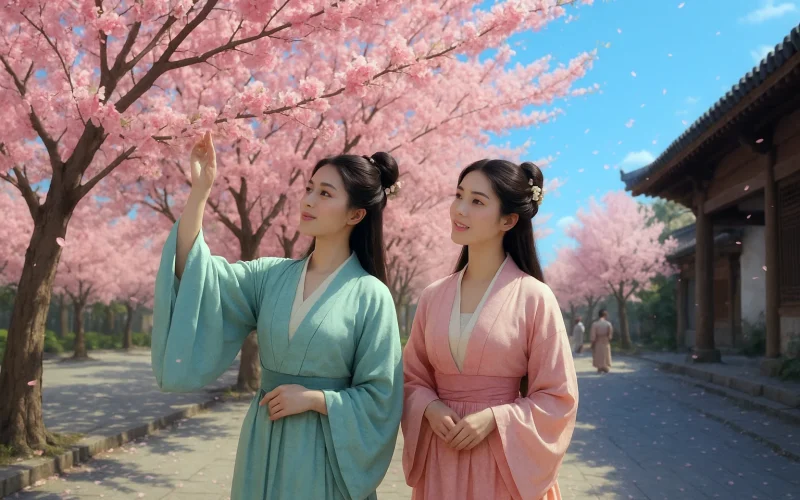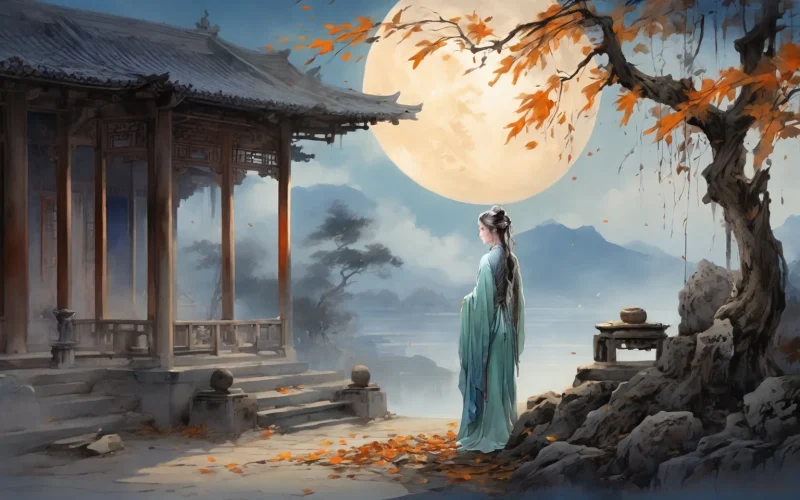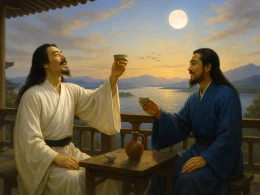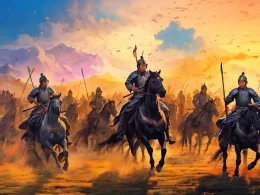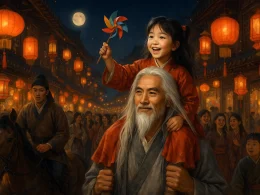In half of the wide courtyard only mosses grow;
Peach blossoms all fallen, only rape-flowers blow.
Where is the Taoist planting peach trees in this place?
I come after I fell again into disgrace.
Original Poem:
「再游玄都观」
刘禹锡
百亩庭中半是苔,桃花净尽菜花开。
种桃道士归何处,前度刘郎今又来。
Interpretation:
This poem was composed in the second year of the Dahe era (828) during Emperor Wenzong's reign, as a continuation of Liu Yuxi’s earlier work dedicated to his friends who appreciated flowers. Previously, Liu Yuxi had been demoted for his satirical poem "Peach Blossoms at the Xuandu Temple," which targeted those in power. After fourteen years of exile, he was recalled to the capital and revisited the Xuandu Temple, only to find its former grandeur replaced by desolation. This poem reflects his profound feelings on the passage of time and his continued defiance of the powerful individuals who once oppressed him.
Upper Couplet: “百亩庭中半是苔,桃花净尽菜花开。”
(In the vast courtyard, half is covered in moss; the peach blossoms have all withered, replaced by humble rapeseed flowers.)
This couplet contrasts the past splendor of the Xuandu Temple with its present desolation. The once vibrant peach blossoms, symbolic of prosperity and grandeur, are now replaced by modest rapeseed flowers, which signify decline. The moss encroaching on the spacious courtyard further underscores the passage of time and the fall of former glories, subtly hinting at the shifts in political power and the impermanence of human affairs.
Lower Couplet: “种桃道士归何处,前度刘郎今又来。”
(The Taoist who once planted peach trees is nowhere to be found; the Liu who was here before has returned again.)
This couplet juxtaposes the vanished Taoist with the poet himself. The Taoist, representing those who once fostered the rise of new political powers, has disappeared, while Liu Yuxi’s return symbolizes the downfall of those same powers and the cyclical nature of political struggles. By referring to himself as "Liu Lang" in a self-deprecating manner, the poet conveys his resilience and subtly mocks the impermanence of the power structures that sought to suppress him.
Writing Characteristics:
- Time and Transformation: Through vivid imagery of the shift from prosperity to desolation, the poem reflects not only the changes in the poet’s personal circumstances but also the broader transformation of political dynamics.
- Symbolism and Allegory: The juxtaposition of peach blossoms and rapeseed flowers symbolizes the fleeting nature of power and the inevitable replacement of one ruling class by another.
- Emotional Resonance: Having endured political turbulence, the poet uses his return to highlight his unwavering determination and courage in the face of adversity.
- Irony and Self-Reflection: By contrasting the “peach-planting Taoist” with the “returning Liu Lang,” Liu Yuxi not only ridicules his former adversaries but also presents his return as a quiet yet poignant act of defiance.
Overall Analysis:
This poem, written during a revisit to the Xuandu Temple, captures the dramatic changes in both the capital’s landscape and Liu Yuxi’s fortunes. The poet uses the imagery of vibrant peach blossoms replaced by humble rapeseed flowers to lament the passage of time and the transient nature of power. Through the metaphor of the “peach-planting Taoist” and the self-reference as “Liu Lang,” the poem subtly critiques the short-lived triumphs of his political opponents and celebrates his enduring spirit. Rich in irony, introspection, and resolve, the poem is a powerful artistic expression of resilience and reflection on impermanence.
Insights:
This poem masterfully intertwines natural imagery with political allegory, illustrating the ephemeral nature of power and fame. It reminds us that glory and prosperity are often fleeting, and the tides of political fortune are ever-changing. Liu Yuxi’s resilience in the face of adversity serves as an inspiring example of perseverance. Despite enduring setbacks, he emerges steadfast, undaunted by the challenges he faced, symbolizing the enduring strength required to navigate life’s uncertainties.
Poem translator:
Xu Yuan-chong (许渊冲)
About the poet:
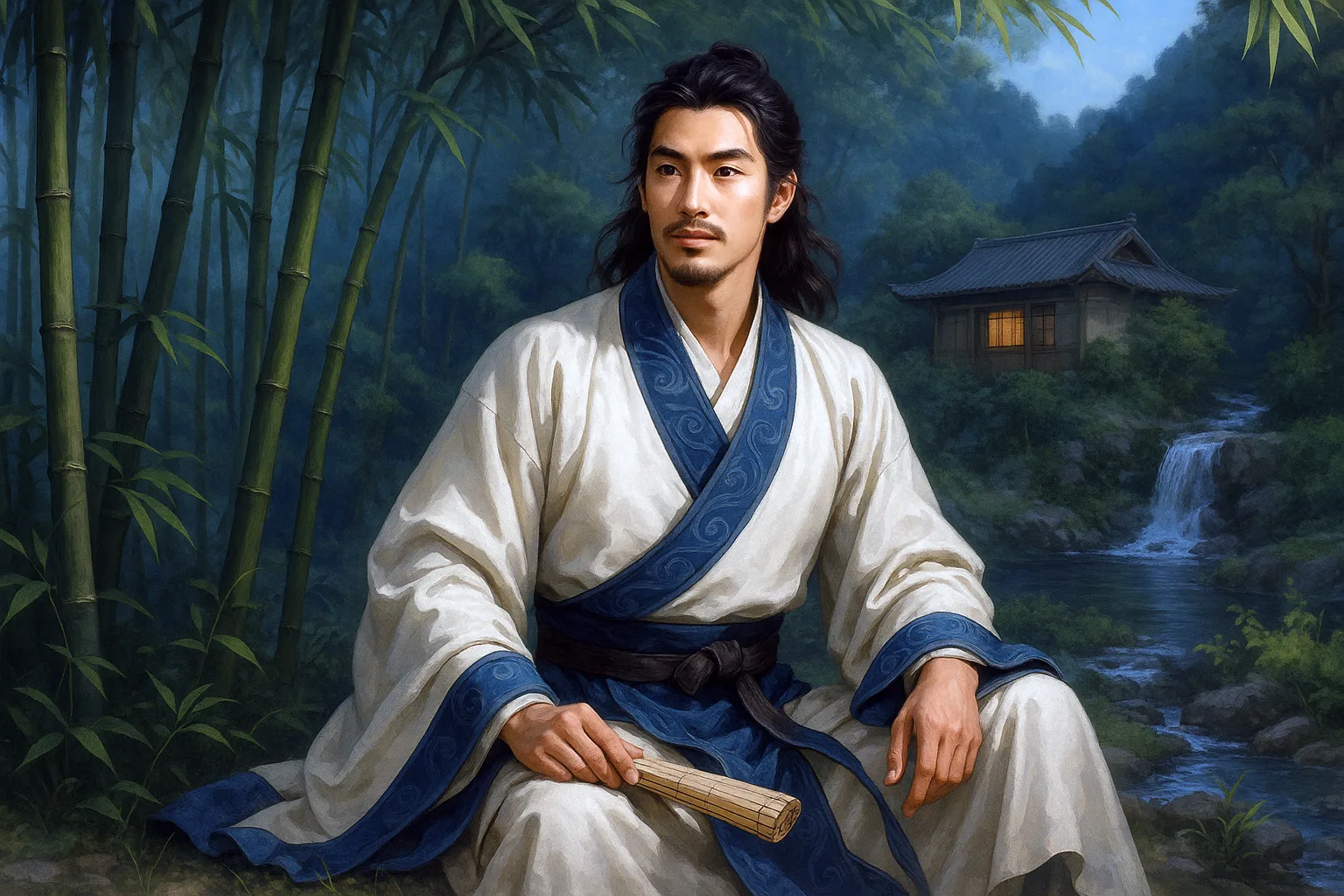
Liu Yuxi(刘禹锡), 772 - 842 AD, was a native of Hebei. He was a progressive statesman and thinker in the middle of the Tang Dynasty, and a poet with unique achievements in this period. In his compositions, there is no lack of poems reflecting current affairs and the plight of the people.






